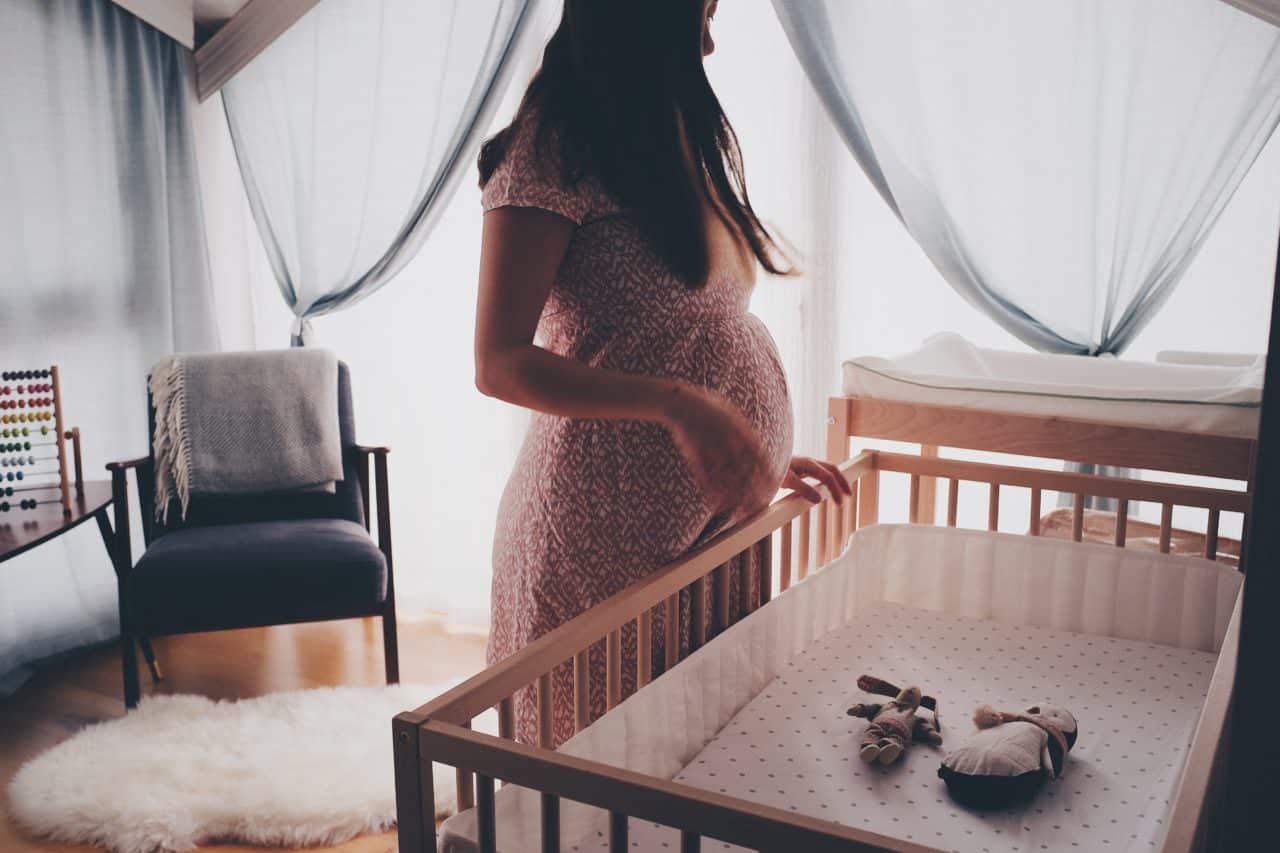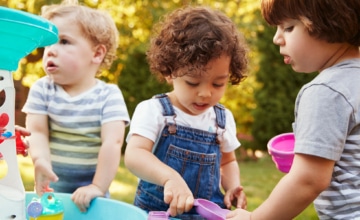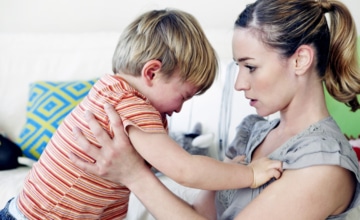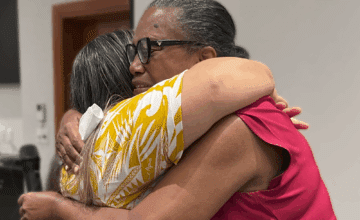Crib Notes is a monthly newsletter that offers members valuable information and insights to support you in your work with expectant parents and families with infants and toddlers. In this issue you’ll find recently published research, reports, and resources of interest to early childhood professionals. Be sure to join us on Member Connect, Facebook and Twitter to share your thoughts and stay up to date on the latest news and information from ZERO TO THREE.
These resources support ZERO TO THREE’s Competencies for Prenatal to Age 5 Professionals. The icon following the abstract identifies the relevant competency domain.
Research
A Third of New Moms During Early COVID Had Postpartum Depression
Laura Bailey, University of Michigan News
March 14, 2022
Before COVID, the Centers for Disease Control and Prevention estimated that 1 in 8 women experienced postpartum depression, and about 5-7% experienced major depressive symptoms. New research found that 1 in 3 new mothers screened positive for postpartum depression and 1 in 5 had major depressive symptoms, including thoughts of self-harm.
Cited Source: Postpartum Depression and Associated Risk Factors During the COVID-19 Pandemic,(full text), C. J. Shuman, A. F. Peahl, N. Pareddy, M. E. Morgan, J. Chiangong, P. T. Veliz, & V. K. Dalton.
BMC Research Notes

Prenatal Mindfulness Program Improves Stress Response in Infants
Jess Berthold, University of California–San Francisco News
March 10, 2022
Infants whose mothers participated in a mindfulness-based program during pregnancy had healthier stress responses at 6 months old, a new study found. The researchers studied mother–infant dyads from low-income, racially and ethnically diverse backgrounds who were experiencing high stress in their lives. Infants whose mothers attended an 8-week mindfulness-based program had a faster cardio-vascular recovery from stressful interactions, as well as more self-soothing behavior, than those who didn’t.
Cited Source: : The Effects of a Prenatal Mindfulness Intervention on Infant Autonomic and Behavioral Reactivity and Regulation,(full text), A. N. Norona-Zhou, M. Coccia, E., Epel, C. Vieten, N. E. Adler, B., Laraia, K. Jones-Mason, A. Alkon, & N. R. Bush.
Psychosomatic Medicine

Bond Between Mothers and Their Babies Integral to Infant Development
Press Office, Deakin University
February 25, 2022
A new study examining the extent to which mother-to-infant bonding can help to predict the infant’s development over time found that mother’s positive perception of her bond with her infant was a marker for more optimal social, emotional, and behavioral development.
Cited Source: : The Role of Antenatal and Postnatal Maternal Bonding in Infant Development,(full text), G. Le Bas, G. Youssef, J. A. Macdonald, S. Teague, R. Mattick, I. Honan, J. E., McIntosh, S. Khor, L. Rossen, E. J. Elliott, S. Allsop, L. Burns, C. A. Olsson, & D. Hutchinson.
Journal of the American Academy of Child & Adolescent Psychiatry

Babies’ Behavior Influenced by the Beliefs of Those Around Them
Central European University Newsroom
February 7, 2022
Infants’ search for potential hidden objects is influenced by how many objects another person believes to be hidden, even when that belief contradicts the infants’ own observation. The results reflect an important feature of human cognition that may be particularly strong in infancy and may play a crucial role in how infants become knowledgeable members of their cultural environment.
Cited Source: :Seeing the World From Others’ Perspective: 14-Month-Olds Show Altercentric Modulation Effects by Others’ Beliefs,(full text), D. Kampis, & A. M. Kovacs. Open Mind

Study Shows Lack of Representation Across Historically Minoritized Racial and Ethnic Groups in Autism Intervention Data
Frank Porter Graham Child Development Institute, University of North Carolina
February 16, 2022
The authors of the study examined data from 1,013 autism intervention studies published in English between 1990 to 2017. Results indicated that autism intervention researchers often do not report the race and ethnicity of study participants (25%). When data is reported, there is a lack of representation across historically minoritized racial and ethnic groups. The authors offered implications, such as: “Since structural racism is pervasive in the field of autism, sweeping changes are necessary in academia, as well as the large systems, such as the medical and educational systems, serving autistic individuals.“
Cited Source: :Patterns in Reporting and Participation Inclusion Related to Race and Ethnicity in Autism Intervention Literature: Data From a Large-Scale Systematic Review of Evidence-Based Practices,(full text), J. R. Steinbrenner, N. McIntyre, L. F. Rentschler, J. N. Pearson, P. Luelmo, M. E. Jaramillo, B. A. Boyd, C. Wong, S. W. Nowell, S. L. Odom, & K. A. Hume.
Autism

Reports
CDC’s Developmental Milestones Update—Help Me Grow Resource Toolkit
Help Me Grow® National Center
March 3, 2022
The Centers for Disease Control and Prevention’s milestones and parent tips have been updated and new checklist ages have been added. This page shares materials that help families, community-based services, and child health providers understand, talk about, and use the new guidelines. Resources include articles, tip sheets, videos, and strategic messaging.

The Impact of the Pandemic on Early Development
Two well-sourced articles add to an emerging body of evidence.
How the Pandemic Has Shaped Babies’ Development
Lydia Denworth, The Atlantic
How the Pandemic is Affecting Babies’ Brains
Caralee Adams, The Hechinger Report

Better Data Needed for Monitoring and Promoting Infant and Toddler Well-Being
Kristen E. Darling & Renee Ryberg, Child Trends
March 15, 2022
Policymakers and practitioners need more comprehensive data describing children’s overall health, including their cognitive and social-emotional-behavioral development. The Measuring Up Collaborative—a group of developmental psychologists, behavioral health scientists, sociologists, and public health experts—came together to determine how to address these needs. This report summarizes their review of existing child indicators and recommendations for improving available data on young children’s development.

Supporting Families Through Coordinated Services Partnerships
Nickie Fung, Elizabeth Cavadel, & Scott Baumgartner, OPRE
February 2022
To improve understanding of approaches to coordinating early childhood education with other health and human services, the Administration for Children and Families sponsored the Assessing Models of Coordinated Services (AMCS) project. This brief describes findings from semi-structured telephone interviews with leaders from 18 coordinated services approaches that were identified as part of the AMCS project. These interviews provided in-depth information about how coordinated services approaches serve children and their families.

Stress in America™ 2022: COVID Second Anniversary
American Psychological Association
March 10, 2022
To better understand the impact of the past t2years on individual stress, the American Psychological Association partnered with The Harris Poll to conduct a survey between February 7 and 14, 2022, supplemented by a late-breaking poll, fielded March 1–3. The results revealed striking findings, with more adults rating inflation and issues related to the invasion of Ukraine as stressors than any other issue asked about in the 15-year history of the Stress in America™ poll. “Americans have been doing their best to persevere over these past two tumultuous years, but these data suggest that we’re now reaching unprecedented levels of stress that will challenge our ability to cope,” said Arthur C. Evans Jr., PhD, APA’s chief executive officer.

Demanding Change: Repairing our Child Care System
Kristina Haynie, Child Care Aware of America
March 7, 2022
The child care system in the U.S. has reached a breaking point due to decades of underfunding and the COVID-19 pandemic. This report analyzes child care supply, demand, affordability and the child care workforce through updated data and case studies. The report also discusses timely topics related to the current child care crisis, including school-age child care, the importance of quality in child care programs, and the growing exodus of women from the workforce due to lack of access to child care.

Reimagining Black Families’ Cultural Assets Can Inform Policies and Practices That Enhance Their Well-being
Chrishana M. Lloyd, Sara Shaw, Mavis Sanders, Maria Abdul-Masih, & Catherine Shaefer, Child Trends
February 23, 2022
This brief, the first in a larger effort by Child Trends researchers to expand the field’s knowledge about Black families’ cultural assets: (1) describes a model of historical and current policies and institutions that have impacted the well-being of Black families with children in the United States; (2) examines historically dominant perspectives in research on Black families and their limitations; (3) describes select cultural assets that anchor Black family life in the United States; and (4) offers recommendations to enhance the field’s understanding of Black family life and well-being.




